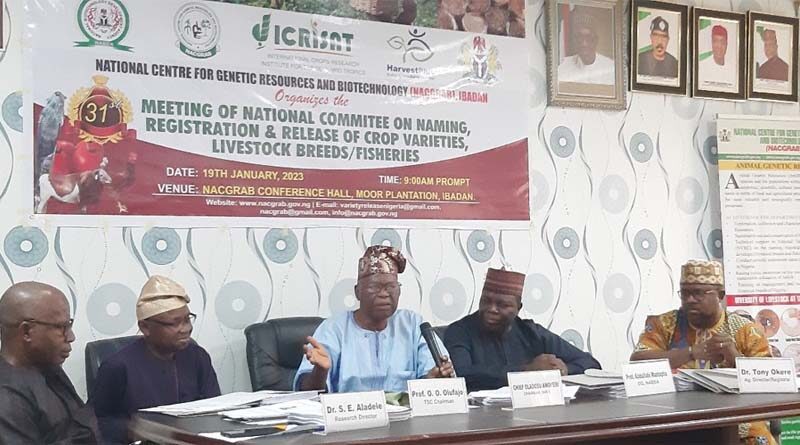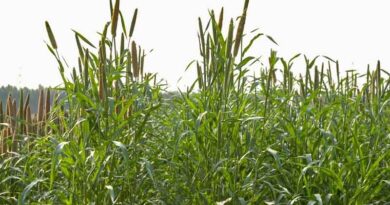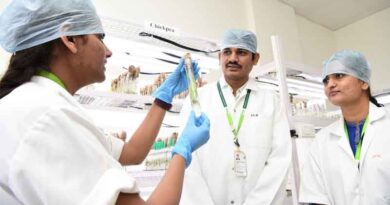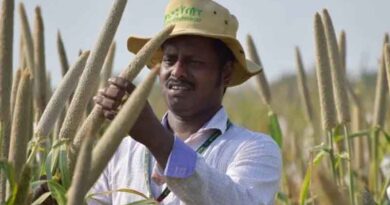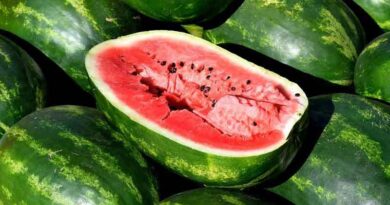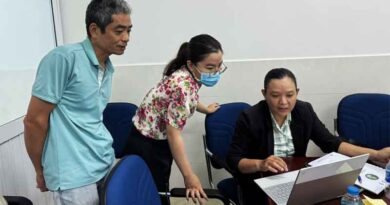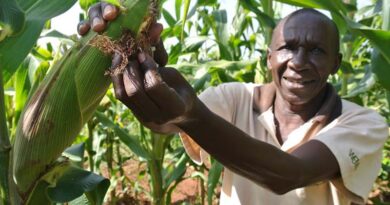Three sorghum and three pearl millet varieties developed by ICRISAT in Nigeria
10 February 2023, Nigeria: ICRISAT in collaboration with Nigeria’s National Agricultural Research System – Lake Chad Research Institute (for pearl millet) and the Institute for Agricultural Research, Ahmadu Bello University (for sorghum) – has developed three sorghum and three pearl millet varieties, which have now been released promising better nutrition and higher yields for farmers.
The three sorghum and three pearl millet varieties are suited to the country’s Sudano-Sahelian/semi-arid ecologies and are designed to be high-yielding, nutritionally enhanced, and well-adapted to local conditions.
Dr. Jacqueline Hughes, Director General, ICRISAT, commended the collaboration.
“These new releases hold promise in boosting production output while providing greater nutrition as they are well-adapted to local conditions, are high-yielding, and nutritionally enhanced.
“This collaboration exemplifies the commitment of ICRISAT and the Nigerian National Agricultural Research System through the Lake Chad Research Institute, the Institute for Agricultural Research, Ahmadu Bello University, and others, to bring innovative technologies and crops to help farmers meet the challenges of the future while improving their yields and livelihoods.
“We anticipate more breakthroughs for Nigeria and West Africa more broadly, helping to future-proof food and nutrition security in the face of climatic and other challenges affecting food production,” said Dr Hughes.
The dwarf sorghum varieties developed named SAMSORG 52, 53, and 54 are suitable for insurgency-endemic regions where tall crops are prohibited. They additionally exhibit high grain and fodder yields, are early maturing, and are Striga tolerant with SAMSORG 52 also being a good ingredient for weaning food due to its high iron content.
The pearl millet varieties offer high yield, early medium maturity, and specific traits such as high iron and zinc, and high-tillering traits or the production of side shoots along with dense panicles to help protect against damage from birds.
ICRISAT Deputy Director General – Research, Dr Arvind Kumar said he was delighted to see the new varieties that would help West African farmers secure a more food-secure future and thanked all scientists and support staff for their dedication to the project.
ICRISAT Research Program Director for Accelerated Crop Improvement, Dr Sean Mayes commended the collaboration and said the new varieties demonstrated the importance of genetic advancements for improving crop productivity and nutrition – especially for regions across Africa and Asia least able to adapt to climatic changes and other environmental stressors.
The varieties have now been approved by Nigeria’s National Committee on Variety Naming, Registration, and Release and are now available for promotion and commercialization through the country’s seed systems.
Dr. Ramadjita Tabo, ICRISAT’s Research Program Director for West and Central Africa, said these diverse varieties marked a pivotal moment in the pursuit of enhanced food security in Nigeria’s semi-arid regions.
This outcome is a result of the long-standing and productive partnership with the Nigerian National Agricultural Research System and we thank the Lake Chad Research Institute and the Institute for Agricultural Research, Ahmadu Bello University.
We look forward to building upon our successes to develop new innovative solutions that overcome nutrition, production and other hurdles facing dryland farmers” said Dr Tabo.
The development of these sorghum and millet varieties was a collaboration between ICRISAT, the Institute for Agricultural Research Samaru, Ahmadu Bello University, Lake Chad Research Institute, Maiduguri, and Harvest Plus in Nigeria.
Also Read: GST rates on agrochemicals must be maintained at 18% to avoid inverted duty structure: CCFI
(For Latest Agriculture News & Updates, follow Krishak Jagat on Google News)

